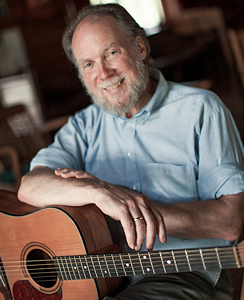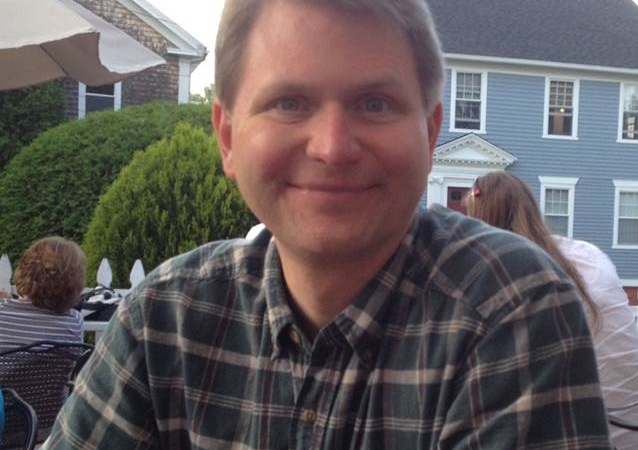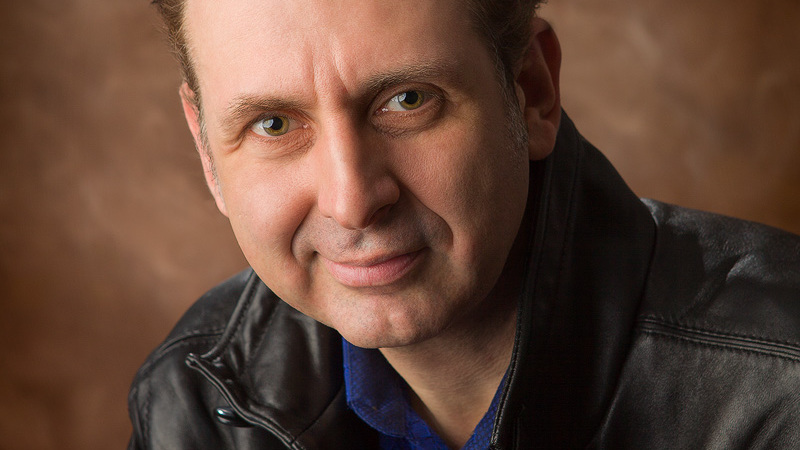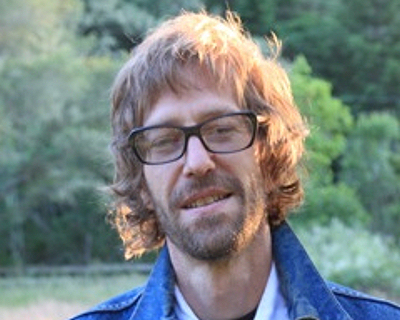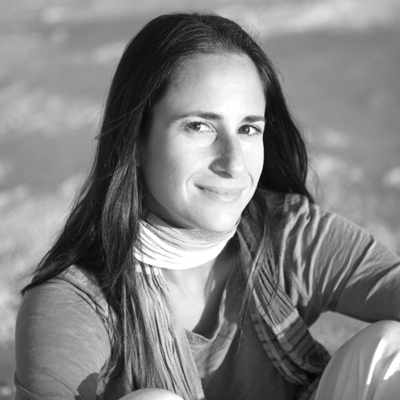Liberation and Salvation
January 10, 2022Rev. Dr. Michael Tino preached this Sermon on December 5, 2021 in the Church of the Larger Fellowship’s Online Sanctuary
Our Universalist ancestors believed that a powerful, radical love awaited them at death, a love so powerful as to be able to cleanse them of even their most vile sins, a love so radical as to be freely available to all. In the days when John Murray ran aground on a sandbar on the coast of New Jersey, it was a wild and heretical theology, this stuff of Universal salvation.
Over the ensuing two hundred and fifty-one years, a theology that holds that all people will ultimately be saved, a theology that rejects the eternal damnation of hell in favor of a reconciliation with a greater love, that theology is not so wild anymore. It is barely even heretical in some corners.
And yet, since Thomas Potter convinced John Murray to preach Universalism in his little chapel, our faith has struggled with the question of what Universalism calls us to in this life, before we die, right here. After all, if we’re all going to be saved anyway, why bother doing anything in this life? Why even bother being good?
Through the generations, our Universalist ancestors came up with decent responses to these questions. And today I want to call us to an answer that Clarence Skinner gave us some 80 years ago.
I don’t always agree with Clarence Skinner, 20th century Universalist theologian. For starters, his history of embracing eugenics is more than a little problematic.
But in particular, I think he led us astray by claiming that big-U Universalism was little-u universal—that we uniquely had a religion for all people and should strive to make it so. That’s modernist, colonizer talk right there, that little-u universal religion stuff. It asks us to point to the existence of a truth that is equally valid for all people, and to claim as that truth a theology of white Europeans and Americans. I don’t believe such a truth exists, much less that white folks would hold it, so I don’t do little-u universal religion.
But when Skinner asked the question “What does Universalism demand of us in this life?” he got to some things I find worthy of holding up.
Universalism, he insisted, call on us to fight the perpetuation of racism. In his 1945 work “A Religion for Greatness,” he wrote that racism is based in selfishness, superstition, and distortion. “If we ‘see life steadily and see it whole,’” he wrote, “we can appreciate all the parts. the part becomes misunderstood only when we see it without relationships, as an end in itself.” Each race, each culture, each difference in humanity, he wrote “has its own genius and each may contribute to a life that is ‘rounded, divine, [and] complete.’”
I believe it is our call to once again make our faith a radical, prophetic, challenge to the way things are. It is time to reclaim our place as the wild heretics pushing society forward, pushing theology forward, pushing humanity forward. It is time to re-think the powerful love our ancestors believed awaited them when they died as a powerful love available to us in the present, while we live.
I believe it’s time to re-think our theology of Universal salvation as a theology of universal liberation, right here.
I believe it’s time for Universalists to claim the radical, powerful love that our ancestors once attributed to God as a possibility of humanity.
Not as an automatic of humanity—we all know that real evil exists in our world, and that systems created by humans perpetuate evil daily—but as a possibility. Which makes our call, as Universalists, making it happen.
In 1915, ten years into his ministry and two decades before he became a professor at Tufts, Clarence Skinner published “The Social Implications of Universalism.” Here’s some of the non-problematic part of what he wrote:
“Universalism was born out of the new humanity; it is the gospel of the new heaven and the new earth. It throbs with hope. It was part of the great world movement to reinterpret life in terms of a regenerated, buoyant, self assertive human nature. Universalism believes in the world and in its potential goodness. It repudiates the gloomy and disastrous outlook of the old anti-social theology. It is not frantically searching for an escape from life.”
He continues, “Only those theologies which frankly and persistently align themselves with the world, and openly champion its potential goodness, can logically enter the great reformation of the twentieth century. They alone believe that salvation comes in, by and through a saved world. This is social salvation. All others believe that salvation comes by escaping from a world which is inherently unsavable. That is the individualistic, anti-social, mediæval faith. Goethe once said that the ideal is not an escape from reality but a completion of it. The Universalist conception of religion is not that of an escape from reality, but that of the harmonious and spiritual development of all the elements of real life.”
How do we persistently align ourselves with the world? How do we openly champion the potential goodness in our midst? What is our call? It is the collective liberation of all of humanity.
And not just the spiritual liberation of all of humanity, but the physical and emotional liberation of humanity as well. These things cannot be separated.
As long as we are not naming the white supremacy culture in our midst and openly, explicitly, constantly working to dismantle it, we are failing in our call to champion the goodness of humanity.
As long as listening to the voices of those who have experienced marginalization and naming the ways in which racism is systematized in our society are somehow controversial things to do, we are failing in our call to champion the goodness of humanity.
As long as violent, extractive capitalist systems are allowed to make policy—to block action on climate change, to enact colonial foreign policies, to abrogate the bodily autonomy of people with uteruses, to let this deadly virus run rampant in communities of color and schools because we insist that certain adult bodies are needed to show up for work, we are failing in our call to champion the goodness of humanity. These evils exist because someone is making money off them, and their money is power in a society that falls short of the radical love that is possible in this world.
And as long as our siblings are locked behind bars, as long as their bodies are fuel for the fire of our prison-industrial system, as long as we insist that punishment by dehumanization is a necessary response to breaking laws, as long as our nation’s constitution allows a loophole in our abolition of slavery for incarcerated people, we are failing in our call to champion the goodness of humanity.
And let’s make no mistake—the systems of injustice that I’m talking about today, these systems are using the very beings—the bodies and the spirits—of black people, indigenous people, people of color, of poor people, of disabled people, of queer people, of women and transgender people, as fuel for the creation of wealth for a very small number of folks.
Let me repeat that—the very bodies of those who are marginalized in so many ways around the world are being used as fuel. Our systems dehumanize people and then turn them into commodities to be used.
As surely as the fires of hell that John Murray rejected burned, human systems of evil burn.
And so it is our call as Universalists to reject that fire consuming our siblings.
It is our call as Universalists to amplify the radical, powerful love that we know humanity is capable of.
It is our call as Universalists to work for the liberation of all of humanity—for the spiritual emancipation that Clarence Skinner wrote of in 1915 as well as the physical emancipation so desperately needed in 2021.
“Light the fuse,” Skinner wrote, “and the fire will reach the bomb.” It is time to set off a love bomb on our world. It is time to act like we are worthy of the God of John Murray and Hosea Ballou, the God of Olympia Brown and Joseph Jordan, the God of Gloster Dalton and Amy Scott. Like we are worthy to call ourselves inheritors of a faith in which all are saved, in which all are free, in which all are loved.
It is time for us to practice radical, powerful, life-saving love. Liberation and salvation. Right here. Right now. Over and over again.
If You Want to See Paradise (Don’t Ask me for a Picture) – Poem by incarcerated member Vylet
March 3, 2020“Come with me, and you will be, in a land full of imagination…”
If You Want to See Paradise (Don’t Ask me for a Picture)
Poem by incarcerated member Vylet
Yeah, I know you want something a little more upbeat.
And all my poems are sad.
I’d write about being happy more often,
If I were happy more often. eee, Gad!
But for you, let me try this.
It’s no big deal.
For you, I will write
What I do not feel.
With imagination it’s easy.
Word play I create.
A mind set to set minds.
In a World. Realist. State.
Happy happy joy joy.
Ahhh, forget this.
What do you want from me?
My heart is dark as midnight
And only death holds the key.
I hate people. I hate life.
I wish death, I stir strife.
I talk proper and fool people.
Sophisticated learned evil.
I wasn’t always full of resentment.
Bitterness and sorrow
Pain and depression.
But that story will not be told,
This morning or after lunch.
Use your imagination
And make one the hell up.
Ah yes, I imagine and daydream it’s true
That one day I won’t have to imagine
What it’s like to be happy
And happily write a poem for you
1-25-2020
Dan Berggren
October 5, 2015Dan Berggren is a tradition-based songsmith who writes with honesty, humor and a strong sense of place. His concerts are engaging as he invites audiences to join in on songs that explore the lives of hard working folks and the many dimensions of home. While his roots are firmly in the Adirondack Mountains where he was raised, his music has branched out across many borders. For over 40 years, the award-winning musician and educator has performed across New York, from Vermont to Michigan, Kentucky to Texas, and overseas in Europe, the British Isles and Central Africa. A SUNY professor emeritus and founding member of the Unitarian Universalist Society of Northern Chautauqua in Fredonia, Dan along with his wife Nancy are active members of the UU Congregation of Saratoga Springs. Click here to visit Dan’s website, Berggren Folk.
“Dan is a throwback to the old role of the folk singer…he’s articulating things that need to be said right now.”
—Bill McKibben, author and environmentalist
The Reverend Joseph Cleveland
December 11, 2014The Reverend Joseph Cleveland is the settled minister of the Unitarian Universalist Congregation of Saratoga Springs, NY. Before he found his calling in Unitarian Universalist ministry, he squandered much of his time on the guitar and banjo. He also founded the Folkus Project of Central New York, a nonprofit group that presents folk and acoustic music in Syracuse, NY.
Every now and then, you’ll find Joe’s put another song up on his page at http://soundcloud.com/joe-cleveland.
Markus Grae-Hauck
December 4, 2014Markus Grae-Hauck is a conductor, pianist, and vocal coach based in the New York City area. He has been a UU musician since 2005 and is currently serving as Music Director for the Unitarian Universalist Congregation at Montclair, NJ.
Markus has conducted and/or accompanied big bands, various vocal ensembles, and over 70 musical theater productions, including a national tour of Irving Berlin’s “I Love A Piano”. He has also lived in Germany, France and Spain, figured out the meaning of life, played keyboards in a rock group while dressed in a neon pink jumpsuit, co-founded an opera company, and released two CDs of his own piano compositions; his music has been featured on nationally syndicated German network radio and on the sampler “le classique abstrait” published worldwide by Universal Music.
You can contact Markus at musicdir@uumontclair.org. Some of his music can be found at www.markushauck.com.
Yuri Yamamoto
September 26, 2013Yuri Yamamoto is a singer, pianist, composer, choir director, story teller, and meditation dancer, and is still expanding her possibilities. She is a member of SKY, a multicultural trio that performs eclectic music, and serves as the Director of Music for the Unitarian Universalist Fellowship of Raleigh, North Carolina while pursuing the UUA Music Leadership Credential. Born and raised in Japan, Yuri is actively involved in supporting the victims of the 2011 Japanese earthquake and tsunami, particularly those who were affected by the damaged nuclear plant in Fukushima. Her music videos as well as videos from an interview in Fukushima are available on Yuri’s YouTube channel. Lyrics of her Japanese songs are written by Masao Tachiya.
http://www.youtube.com/user/JAmilkpig
Travis Wernet – aka “Outlaw Dervish”
September 26, 2013Travis is a Certified Projective Dream Worker, Professional Musician and ordained Unitarian Universalist Minister who leads on-going groups, and has offered his work internationally. He fuses his offerings in occasional Work Shops drawing on a diverse set of practices for exploring the rich wisdom of dreams. In June 2012, he led a workshop on Sound Healing and Dream Work at the International Association for the Study of Dreams Annual Conference in Berkeley California. Various Sound Healing techniques are applied in tandem with the dream work, providing layers of enriched experience for accessing the Deep Self. Travis also incorporates Shamanic techniques in order to ‘bring the dream alive’ and has been facilitating groups for the past 18 years, bringing a mythological-archetypal-poetic perspective to the work and much life experience. Musically, Travis has been playing Didjeridu and offering original Mystical Spoken Word Poetry for several years in a wide variety of musical projects, including Outlaw Dervish and Axis Mundi. He has traveled to India, Egypt and Australia to play music and say poems in group ceremonies and sacred spaces, and has released 4 studio albums featuring Didjeridu, on his own, and with Collaborators, most recently “Yoro Yoro” with Ben Leinbach.
http://www.intuitivesound.net/music.htm
Amy Carol Webb
September 26, 2013The Reverend Amy Carol Webb is the “beloved song weaver” – passionate, powerful, and poignant. Born and reared in Oklahoma, Amy traces her heritage back to Native Americans through her Great-Grandmothers who settled Oklahoma when it was still a Territory. Amy’s music and ministry reflect the same pioneering spirit, tenacity, integrity and never-quit grit. With her undergraduate degree in performing arts, Amy cultivated a long and rewarding career travelling the world as a performer, recording artist and voice coach. Answering a life-long call to ministry, she earned her M.Div. from Andover Newton Theological school, and is now ordained to Unitarian Universalist Ministry. She currently serves as a hospice Chaplain, fills pulpits throughout Florida and the eastern seaboard, coaches congregational singing and composes both worship and secular music. She is presently at work on her 9th CD from her home in Miami, Florida. A congregant says, “Amy not only moves you, she moves you forward.”
Rabbi Danielle Upbin
September 26, 2013Rabbi Danielle Upbin is a prayer leader, teacher, inspirational preacher and singer-songwriter. Originally from New York City, she currently resides in Clearwater, FL, where she and her husband serve as the spiritual leaders of Congregation Beth Shalom. Chanting Hebrew prayer in a joyous and soulful manner is Rabbi Danielle’s passion. She has studied meditation, Jewish mysticism, and yoga and strives to interweave inspiring teachings from Judaism into her presentations. She is actively involved in a local interfaith coalition, and is a regular presenter of song and prayer in the Unitarian Universalist Congregation of Clearwater’s monthly gathering called “Festival Ruah: A Multicultural Spirit Experience” along with musicians, dancers, artists and spiritual leaders from around the globe.
Rabbi Danielle released her first CD in 2012, entitled, “Reveal the Light”, an eclectic collection of spiritually oriented songs and chants in Hebrew and English. It has been said of her CD: “Reveal the Light gives us a sonic pathway into the rich tradition of the jewish faith, blesses us with the gift of hearing the power and sincerity of Rabbi Danielle’s voice, and adds to our palate of songs to be sung for sheer pleasure.” – Fred Johnson, internationally acclaimed Jazz musician, singer and spiritual teacher.
When she isn’t singing, Rabbi Danielle is chasing around her four little children, running half-marathons, and baking cookies.
Her music is available on iTunes, Amazon, CDBaby and OySongs.com.
Renew Your Membership
We invite you to join your fellow CLFers to renew your CLF membership and stewardship of the CLF for another year.
Support the CLF
Can you give $5 or more to sustain the ministries of the Church of the Larger Fellowship?
Newsletter Signup
About
Quest for Meaning is a program of the Church of the Larger Fellowship (CLF).
As a Unitarian Universalist congregation with no geographical boundary, the CLF creates global spiritual community, rooted in profound love, which cultivates wonder, imagination, and the courage to act.
Contact
Church of the Larger Fellowship Unitarian Universalist (CLFUU)
24 Farnsworth Street
Boston MA 02210

